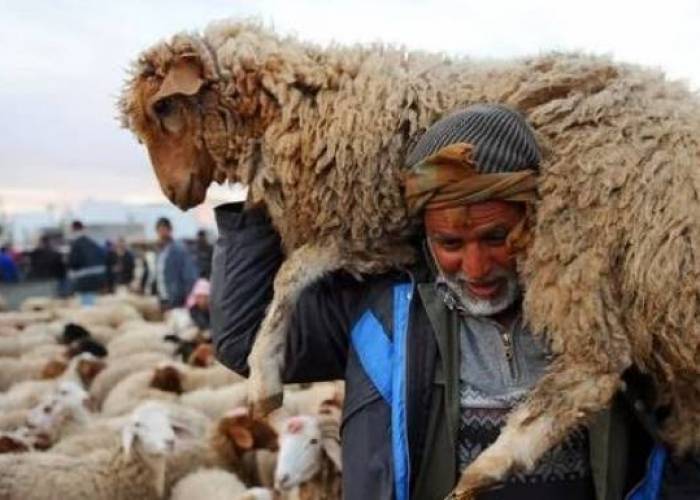The Syrian Minister of Agriculture claimed that the aim of the government’s decision to allow the export of 200,000 sheep until the end of November is to reduce the burden on breeders due to the problems of fodder and pastures.
According to the pro-regime Al-Madina FM radio, Minister Hassan Qatana said that Syria had previously exported more than 2 million sheep in a call not to be afraid of rising meat prices in the local market.
Activists on social media criticized Qatana’s statement, accusing him of wasting Syria’s livestock wealth in search of hard currency and not in order to protect the breeders as he claims, noting that the government was the first to secure fodder and support this sector instead of this decision, which immediately caused The high prices of meat and sheep in the local market.
Read Also: Rents Double in Just a Year
In mid-August, the Syrian regime issued a decision allowing the export of sheep through all border crossings, with a total of 200,000 sheep, but stipulated that each exporter return $300 for each sheep that is exported.
The regime also abolished the condition of linking export to import when exporting sheep, claiming that all foreign exchange obtained from sheep export would be monitored in favour of importing agricultural production requirements for the next season.
Red meat prices witnessed significant increases when the decision was issued to allow the export of sheep, as the price of a kilo of lamb increased from 32,000 pounds to about 40,000 pounds in Damascus markets, noting that many pro-regime media websites revealed that so far, no sheep have been exported.
As a result of the condition set by the Syrian regime, which is to return an amount of $300 for each sheep, as the exchange rate of the dollar in the regular market is 3,000 pounds, while on the black market, it is more than 5,000 pounds, which makes exporters reluctant to take this adventure.
This article was edited by The Syrian Observer. The Syrian Observer has not verified the content of this story. Responsibility for the information and views set out in this article lies entirely with the author.


